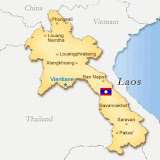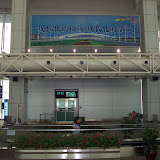讀到這篇龍應台寫給她兒子安德烈的信。除了把信中描述的情況與自身的連結起來之外,還想到A先生與他的一歲女兒,以及教會其他有小孩的父母。龍應台(MM),就是我們小組其中一位組員很敬重而且還替其工作的一位台灣教授。她的大兒子安德烈及小兒子菲力普是台灣與德國混血兒,並在德國長大。
這封信,講到龍應台的兒子要脫離父母獨立,要獨自向外闖﹝留意去上海實習那一段﹞,又提到菲力普感到在中國人的世界,只要子女是站在父母身旁,不論他們年紀多大,他們也是沒有地位。
我在想,假設A先生你的女兒在十八二十年後突然對你說她要出走,可能是做一些你不認為要做的事,或是去一個你沒有聽過的地方,或是她已經不是你陪太太生產時的女兒,你會如何反應?你會打她罵她、勸她留下、還是讓她走?
我相信這個問題很難答。中國人的家庭觀念較強,如何在維繫家庭與保持個性之間取得平衡,是一學問。
但你有十八年去想這問題。
親愛的安德烈:
你昨天的話是這麼說的:「MM,你跟我說話的語氣跟方式,還是把我當十四歲的小孩看待,你完全無法理解我是個二十一歲的成人。你給我足夠的自由,是的,但是你知道嗎?你一邊給,一邊覺得那是你的『授權』或『施予』,你並不覺得那是我本來就有的天生的權利!對,這就是你的心態啊。也就是說,你到今天都沒法明白:你的兒子不是你的兒子,他是一個完全獨立於你的『別人』!」
安德烈,那一刻,簡直就像經典電影裡的鏡頭,身為兒子的向母親做斬釘截鐵的獨立宣言,那飾演母親的, 要不然就氣得全身發抖「刷」一個耳光打在兒子臉上,兒子露出愕然的表情,然後憤而奪門離去,要不然,母親愕然,然後眼淚潸潸而下,本來威武莊嚴的母儀突然垮了,慘兮兮地哭。
我也沒辦法應付這局面,安德烈,譬如你站在沙灘上,突然一個浪頭,天一樣高,眼睜睜看它撲下來,你其實不知道躲到哪裡去,反正趴躺都會被擊倒。
你所不明白的是,你的獨立宣言,不僅只是美國對英國的獨立宣言,那畢竟是同一個文化內部的格鬥;你的獨立宣言──不知怎麼我想到一個不倫不類的比喻──是奈及利亞向法國宣布獨立,是古巴向西班牙挑戰,是甘地向英國說「不」。
你根本不知道大多數的亞洲母親是怎麼對待她們的兒女的。
你記不得你香港的數學家?他是博士生了,談妥要來上班之前,還說要打電話回北京問他父母同不同意他做家。你記不得大三的小瑞?她到台北和朋友晚餐,結束之後還打電話問她媽准不准許她搭計程車回家,結果電話裡的媽說計程車危險,她必須搭公車。你記不記得大二阿芬?拿暑期創意營的選課單,說傷腦筋,不知道她媽會不會同意她選她真正想要的課程。
這些,都是典型的鏡頭;我不是這樣的母親。
但是同時,我也看見二十一歲的女兒跟母親手挽手親密地逛街,看見十八歲的兒子很「乖」地坐在母親身邊陪母親訪友,跟母親有說有笑。
老實說,安德烈,我好羨慕啊。
但是,我不敢企求,因為,我也覺得,剛成年的人跟母親太親近、太「乖」,恐怕代表他本身的人格獨立性不夠完整。我渴望和你們保持兒時的親密,但是又知道這是不能的幻想。我其實是一個非常不典型的亞洲母親了,而且還一直認真地在上你和菲力普給我的「課」。
他幾歲?
菲力普和我在香港生活了兩年,從他的十四歲到十六歲。他對我和朋友們的談話議題興趣很濃。譬如和中國來的記者談中國問題,或者和美國記者談國際局勢,十五歲的他都會很專注地傾聽、提問,也談自己的看法。
有一天,一群朋友剛離開,他說,「媽,你有沒有注意到一個你的華人朋友的特徵?」
我說沒有。
他說,「就是,當他們要問我什麼問題的時候,他們的眼睛是看你的,而且,就站在我面前,卻用第三人稱『他』來稱呼我。」
嗄?
我其實沒聽懂他的意思,但是我們接做了一次實驗。就是觀察下一次朋友來的時候所做的舉動。結果是這樣的:
授甲進來,我介紹:「這是中文系甲授,這是我的兒子菲力普。」
他們握手。然後甲授對我問:「好俊的孩子。他會說中文嗎?」
我說,「會,說得不錯。」
甲授問,「他幾歲?」眼睛看我。
我說,「十五。」
甲授說,「他讀幾年級呢?」眼睛看我。
我說,「你問他吧。」甲授這才轉過去看菲力普。但是沒說幾句,又轉回來了,「他懂幾國語言啊?」
菲力普在一旁用偷笑的眼神瞅我。
這個實驗發生了之後,我也變敏感了。記不記得,你剛到香港時生病了,我陪你去看醫生。我們兩人一起進去,你坐在醫生對面,我一旁站。醫生看了你一眼,然後抬頭問我:「他哪裡不舒服?」我趕忙說,「請你問他。」
那時,你二十歲。
十六歲的菲力普,在我們做過多次的實驗後,曾經下過這樣的觀察歸納,他說:「媽,我覺得,差別在於,歐洲人是看年齡的,譬如在德國學校裡,你只要滿十四歲了,老師便要用『您』來稱呼學生。但是中國人看的不是年齡而是輩份,不管你幾歲,只要你站在你媽或爸身邊,你就是『小孩』,你就沒有身分,沒有聲音,不是他講話的對象。所以他才會眼睛盯你的媽或爸發問,由『大人』來為你代言。」
菲力普做這歸納的時候,安德烈,我這有名的社會觀察家,真的傻了。
此後,即使站在朋友身邊的孩子只有醬油瓶子那麼高,我也會彎下腰去和他說話。
要不要上廁所?
菲力普給我另一次「震撼課」,是在墾丁。我們一大幫人,包括奶奶舅舅表弟表妹們,幾輛車到了墾丁海岸。大家坐在涼風習習的海岸咖啡座看海。過了一陣子,我聽見一旁舅媽問她讀大學的女兒咪咪,「要不要上廁所?」我也想去洗手間,起身時問菲力普:「要不要上廁所?」
你老弟從一本英文雜誌裡抬眼看我,說,「媽,我要不要上廁所,自己不知道嗎?需要媽來問?」
喔,又來了。我不理他,逕自去了。回來之後,他還不放過我,他說,「媽,咪咪二十歲了,為什麼她媽還要問她上不上廁所?」
嗄?
「第一,這種問題,不是對三歲小孩才會問的問題嗎?第二,上廁所,你不覺得是件非常非常個人的事嗎?請問,你會不會問你的朋友『要不要上廁所』?」
我開始想,好,如果我是和詩人楊澤、歷史學者朱學勤、副刊主編馬家輝、小說家王安憶一起來到海岸喝咖啡,當我要去上廁所時,會不會順便問他們:「楊澤,朱學勤,馬家輝,王安憶,你要不要上廁所?」
菲力普看我陰晴不定的表情,說,「怎樣?」
我很不甘願地回答說,「不會。」
他就乘勝追擊,「好,那你為什麼要問我上不上廁所呢?你是怕我尿在褲子裡嗎?」
價值拔河
我們之間的矛盾,安德烈,我想不僅只是兩代之間的,更多的,可能是兩種文化之間的。
我常常覺得你們兄弟倆在和我做智力對決,價值拔河。譬如你的中文家教來到家中,我看見你直接就坐下來準備上課;我把你叫到一旁跟你說,「安德烈,雖然你的家教只比你大幾歲,你還是要有一定的禮節:給他奉上一杯茶水,請他先坐。他離開時,要送客送到電梯口。」你顯然覺得太多禮,但你還是做了。
我也記得,譬如住在隔壁的好朋友陳婉瑩授來到家中,你看她進來,對她說了聲「嗨」,還是坐在椅子上讀報。我說,「不行,再熟她都還是你的教授,在中國的禮儀裡,你要站起來。」你也接受了。
我們之間,有很多價值的交流,更何況,德國的傳統禮節不見得比中國的少,歐洲社會對親子關係的重視,不見得比亞洲人輕,對吧?
可是昨天發生的事情,還是讓我難以消化,隔了一夜還覺得鬱結在心中。
你和菲力普到上海來做暑期實習,我也興高彩烈地把自己的研究行程安排到上海來。一個做母親的快樂想像:母子三人共處一室,在上海生活一個月,多幸福。讓我來引導你們認識中國,多愉快。
我怎麼會想到,你們的快樂想像和我的剛好相反。
你說,「我好不容易可以有自己的獨立空間,為何又要和媽住一起?而且,難道以後我到某一個城市去工作了,做媽的都要跟嗎?」
十八歲的菲力普,剛從德國降落,天真的眼睛長在一百八十四公分的身軀上,認真地說,「我不要你牽我的手去認識中國──因為你什麼都知道,什麼都安排得好好的,但是真正的世界哪裡能這樣。我要自己去發現中國。」
我聽見自己可憐巴巴的聲音說,「難道,連一個週末都不肯跟我去玩?青島?蘇州?杭州?」你們眼睛都不眨一下,異口同聲說,「媽,你能不能理解:我們要自己出去 ,自己探索?」
安德烈,我在面對你們的「歐洲價值」,心裡覺得徹底的失落。可是,轉念想想,你們倆,是否也在努力抵抗你們母親身上的某些「亞洲價值」而覺得「有點累」呢?
昨晚,我一個人去散步。從梧桐樹夾道的興國路一直走到淮海中路,月亮黃澄澄的,很濃,梧桐的闊葉,很美。我足足走了一個小時,然後叫車到你倆麗園路的住處,看見你們自己洗好的衣服襪子凌亂地散在沙發上。我想,「不行,我也不能幫你們清理家裡。」
在沈沈的夜色裡,菲力普送我到大馬路上搭車。他忍受我一個深深的擁抱,然後大踏步走到馬路的對岸。
Friday, November 23, 2007
Thursday, November 08, 2007
Infamous Boston jail now a luxury hotel
上網讀到這文章。不知道對香港的保育工作有沒有啟示。
By DENISE LAVOIE, Associated Press Writer
Wed Nov 7, 3:51 PM ET
BOSTON - The elegant iron-railing balconies were once catwalks where guards stood watch over the inmates to make sure they didn't try to break out. If you look closely, you can still see the outline of the holes from the iron bars on the windows.
At the newly opened Liberty Hotel, it's hard to escape what this building once was: a decrepit jail where Boston locked up its most notorious prisoners.
But that's just the point.
After a five-year, $150 million renovation, the old Charles Street jail is now a luxury hotel for guests who can afford to pay anywhere from $319 a night for the lowest-priced room to $5,500 for the presidential suite. The hotel, at the foot of Boston's stately Beacon Hill neighborhood, opened in September.
Architects took pains to preserve many features of the 156-year-old stone building and its history.
The old sally port, where guards once brought prisoners from paddy wagons to their cells, is being converted into the entrance to a new restaurant, Scampo, which is Italian for "escape."
In another restaurant, named Clink, diners can look through original bars from cell doors and windows as they order smoked lobster bisque or citrus poached prawns from waiters and waitresses wearing shirts with prison numbers. The hotel bar, Alibi, is built in the jail's former drunk tank.
Instead of con men, counterfeiters and cat burglars, the guests now include Mick Jagger, Annette Bening, Meg Ryan and Eva Mendes.
The old clientele included Boston Mayor James Michael Curley, who served time for fraud in 1904 after he took a civil service exam for a friend; Frank Abagnale Jr., a 1960s con artist played by Leonardo DiCaprio in the movie "Catch Me If You Can;" a group of thieves who pulled off the Great Brinks Robbery in Boston in 1950; and a German U-boat captain who was captured in 1945 and killed himself with shards from his sunglasses.
Boston also has a luxury hotel called Jurys in the former Boston police headquarters building in fashionable Back Bay. The hotel bar is called Cuffs.
The transformation of the Charles Street Jail is stunning to some of those who spent time in the notorious lockup.
"It's a magnificent place," said Bill Baird, an activist locked up for 37 days in 1967 for breaking a Massachusetts law prohibiting the distribution of contraceptives to unmarried people. His arrest led to a landmark 1972 Supreme Court decision legalizing birth control for unmarried people.
"How you could take something that was so horrible and turn it into something of tremendous beauty, I don't know," said Baird, who visited the new hotel in October, on the 40th anniversary of his conviction.
When the jail opened in 1851, it was hailed as an international model for prison architecture. Built in the shape of a cross, the granite jail had a 90-foot-high central rotunda and four wings of cells. Large arched windows provided lots of natural light and good ventilation. Each of the 220 cells housed just one inmate.
But over the years, the jail fell into disrepair and became filthy, overcrowded and prone to riots.
Joseph Salvati, who spent 10 months in the jail in 1967 and 1968 after he was charged in a gangland slaying, said everything was covered with pigeon droppings.
"They had a crew every morning that would come down with hot water hoses and brushes to scrape it off the floor and seats," he said. "You had to rush down for breakfast to get a seat that was clean."
Salvati, who was exonerated after spending 30 years in various prisons, said he gets a kick out of seeing the jail turned into a luxury hotel. It is now "very classy-looking," he said.
In the 1970s, the inmates sued over the squalid conditions. After spending a night at the jail to see things for himself, a federal judge in 1973 ordered the place closed. But it took until 1990 for a new jail to be built and the last inmates to be moved.
The property was bought by Massachusetts General Hospital, next door, which invited proposals for preserving the building's historical character.
Cambridge developer Richard Friedman said the architects tried to retain some original elements while not reminding people too much of its dark past.
"How do you transform that into a joyous place where people have fun and a good time?" Friedman said. "We tried to use a sense of humor."
Charlene Swauger of Albuquerque, N.M., who stayed at the hotel for a long weekend in October, said the designers preserved elements of the old jail without crossing the line into bad taste.
"I thought it was very clever. I didn't discover any ghosts or anything," she said.
Eighteen of the hotel's 298 rooms are built in the original jail. Those rooms feature the original brick walls of the jail but also have high-definition TVs. The remaining rooms are in a new 16-story tower.
Max Stern, the chief lawyer for the inmates whose lawsuit led to the jail's closing, said some aspects of the project — such as calling the restaurant Clink — are too lighthearted.
"I thought they could have been a little more objective about what it really was like," he said.
By DENISE LAVOIE, Associated Press Writer
Wed Nov 7, 3:51 PM ET
BOSTON - The elegant iron-railing balconies were once catwalks where guards stood watch over the inmates to make sure they didn't try to break out. If you look closely, you can still see the outline of the holes from the iron bars on the windows.
At the newly opened Liberty Hotel, it's hard to escape what this building once was: a decrepit jail where Boston locked up its most notorious prisoners.
But that's just the point.
After a five-year, $150 million renovation, the old Charles Street jail is now a luxury hotel for guests who can afford to pay anywhere from $319 a night for the lowest-priced room to $5,500 for the presidential suite. The hotel, at the foot of Boston's stately Beacon Hill neighborhood, opened in September.
Architects took pains to preserve many features of the 156-year-old stone building and its history.
The old sally port, where guards once brought prisoners from paddy wagons to their cells, is being converted into the entrance to a new restaurant, Scampo, which is Italian for "escape."
In another restaurant, named Clink, diners can look through original bars from cell doors and windows as they order smoked lobster bisque or citrus poached prawns from waiters and waitresses wearing shirts with prison numbers. The hotel bar, Alibi, is built in the jail's former drunk tank.
Instead of con men, counterfeiters and cat burglars, the guests now include Mick Jagger, Annette Bening, Meg Ryan and Eva Mendes.
The old clientele included Boston Mayor James Michael Curley, who served time for fraud in 1904 after he took a civil service exam for a friend; Frank Abagnale Jr., a 1960s con artist played by Leonardo DiCaprio in the movie "Catch Me If You Can;" a group of thieves who pulled off the Great Brinks Robbery in Boston in 1950; and a German U-boat captain who was captured in 1945 and killed himself with shards from his sunglasses.
Boston also has a luxury hotel called Jurys in the former Boston police headquarters building in fashionable Back Bay. The hotel bar is called Cuffs.
The transformation of the Charles Street Jail is stunning to some of those who spent time in the notorious lockup.
"It's a magnificent place," said Bill Baird, an activist locked up for 37 days in 1967 for breaking a Massachusetts law prohibiting the distribution of contraceptives to unmarried people. His arrest led to a landmark 1972 Supreme Court decision legalizing birth control for unmarried people.
"How you could take something that was so horrible and turn it into something of tremendous beauty, I don't know," said Baird, who visited the new hotel in October, on the 40th anniversary of his conviction.
When the jail opened in 1851, it was hailed as an international model for prison architecture. Built in the shape of a cross, the granite jail had a 90-foot-high central rotunda and four wings of cells. Large arched windows provided lots of natural light and good ventilation. Each of the 220 cells housed just one inmate.
But over the years, the jail fell into disrepair and became filthy, overcrowded and prone to riots.
Joseph Salvati, who spent 10 months in the jail in 1967 and 1968 after he was charged in a gangland slaying, said everything was covered with pigeon droppings.
"They had a crew every morning that would come down with hot water hoses and brushes to scrape it off the floor and seats," he said. "You had to rush down for breakfast to get a seat that was clean."
Salvati, who was exonerated after spending 30 years in various prisons, said he gets a kick out of seeing the jail turned into a luxury hotel. It is now "very classy-looking," he said.
In the 1970s, the inmates sued over the squalid conditions. After spending a night at the jail to see things for himself, a federal judge in 1973 ordered the place closed. But it took until 1990 for a new jail to be built and the last inmates to be moved.
The property was bought by Massachusetts General Hospital, next door, which invited proposals for preserving the building's historical character.
Cambridge developer Richard Friedman said the architects tried to retain some original elements while not reminding people too much of its dark past.
"How do you transform that into a joyous place where people have fun and a good time?" Friedman said. "We tried to use a sense of humor."
Charlene Swauger of Albuquerque, N.M., who stayed at the hotel for a long weekend in October, said the designers preserved elements of the old jail without crossing the line into bad taste.
"I thought it was very clever. I didn't discover any ghosts or anything," she said.
Eighteen of the hotel's 298 rooms are built in the original jail. Those rooms feature the original brick walls of the jail but also have high-definition TVs. The remaining rooms are in a new 16-story tower.
Max Stern, the chief lawyer for the inmates whose lawsuit led to the jail's closing, said some aspects of the project — such as calling the restaurant Clink — are too lighthearted.
"I thought they could have been a little more objective about what it really was like," he said.
Wednesday, November 07, 2007
一念之差

一個喪夫的媽媽,與兒子一起搬去亡夫家鄉生活,可惜好境不常,兒子被撕票。
這媽媽在傷心欲絕的情況下信了基督教,努力重新過生活。一天,她決定要寬恕那綁匪,因為她相信神愛世人,神叫她去寬恕。
她躊躇地步入監獄,向那綁匪說神的恩典與愛很偉大,能安慰每一個人,賜人平安。
那個綁匪表情安詳,向這媽媽說他進監獄後不久也信了基督教,他已經感受到神的平安及神已寬恕他的罪,又說自己也祈求神看顧這位媽媽。
媽媽跟先前一樣,躊躇地步出監獄,一切看上去很順利,她的朋友們為那綁匪所感受的平常而高興。她在此時卻突然暈倒,從此做出種種敵對教會的行為,更患上精神病,最終情況也沒有好轉。
這是最近看的韓國電影「密陽」(Secret Sunshine)的情節。
一般人當得知那綁匪或罪犯也歸信基督教從而痛改前非時,會感到高興,認為神在同時間看顧罪犯與受害者,恩典太美麗。
可是,當代入電影中那位媽媽的角色時,會看到錢幣有兩面,而中間只有一線之差,很容易會心生怨恨。
為什麼?因為當我打算以一個在上者的姿態去寬恕另一人時,我心中已假設了對方會萬分感激,或者對自己的罪行仍懊悔得痛不欲生而拒絕寬恕,又或者對方仍未對罪行感到悔意。
可是,對方竟然說神在很久以前己寬恕了他,他已感到平安。換句話說,無論我現在的心境如何,對他懷恨在心也好,接納也好,他也生活如常,他根本不需要我的寬恕。更甚的是,他再奉上一句「我也有為你祈禱」,來一招「反客為主」,完全足以把我的自我打倒。
電影中的媽媽說了一句「神為什麼在我原諒那綁匪前便寬恕他?既然神己寬恕了他,那我還為什麼要去寬恕?我為什麼要經歷喪子之痛?」
教會的朋友幫不到她。到最後,她還是放不下,不能面對綁匪的女兒,神情依舊迷茫。
當面對曾令自己痛苦的人時,放下自我是一件很難做的事。
這套電影雖然不是一般的宗教電影,講述神如何改變一個人,但卻激起反思,值得一看。
Subscribe to:
Comments (Atom)









